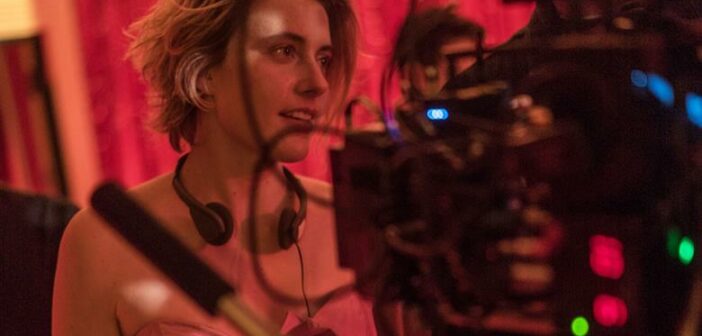A quadruple-threat, Greta Gerwig has mastered directing, acting, screenwriting and playwriting, and has been at the forefront of film news for the past few years. She is the talent behind the critically acclaimed 2023 Barbie film, as well as fan favourites like Little Women and Lady Bird. Gerwig made a name for herself in the film industry as a director because of her spotlight on women and women’s issues.
Her directorial debut, Lady Bird, is a perfect example of this talent as the narrative focuses on the life and relationships of a teenage girl, a stock character that is frequently trivialised in traditional film narratives. Where some would squash this character into the box of a boy-crazy teenage girl, Gerwig broadens the scope of her eponymous character. Saoirse Ronan’s portrayal of Lady Bird along with Gerwig’s direction presents her as more than feminine stereotypes, and instead she becomes a fully-formed and fully-flawed character. She fights with her mother, has crushes on boys, and struggles with religion to simply name a few. Gerwig seems to have a talent of bringing multi-faceted female characters to the forefront of pop culture.
2019’s adaptation of literary classic Little Women is a particular another example of this power. As a novel that has been adapted many times, it might seem challenging to find a new angle from which to approach the March sisters and yet she succeeds. Where others have left each girl as two-dimensional, Gerwig rounds out each personality, flaws and all. Amy becomes more than her vanity, Jo becomes more than her pride, Beth becomes more than simply her illness, while Meg becomes more than a typified mother and woman. The way that Gerwig approaches the character of Jo, in particular, is what made me first fall in love with her as a director. A key moment in the character arch of Jo March is her hotly debated ‘relationship’ with Laurie and her eventual refusal of his proposal. Many say it seems out of character for her to reject her best friend, however Louisa May Alcott famously based her off of herself. Jo struggles to get her writing taken seriously and published in an oppressive world and Alcott struggled with the same. Alcott is often also suggested to have been a lesbian and may have emulated this secret part of herself within Jo’s character, explaining her refusal of a man who appears to be her perfect equal. When she approached this project, Gerwig had already made many bold moves by choosing to focus on each women’s struggle in their personal lives rather than their romantic ones. In Gerwig’s version, Jo is told by her publisher that women must either be married or dead by the end of a story, and we, then, go on to see both a future where Jo marries and a future where she fulfills her writing dreams. Gerwig expertly preserves the original narrative, whilst allowing for this more liberal interpretation of Alcott’s own wishes. Greta Gerwig has a talent for perfectly encapsulating the fears and joys of being female and it has never been more clear than through her depictions of the March Sisters.




